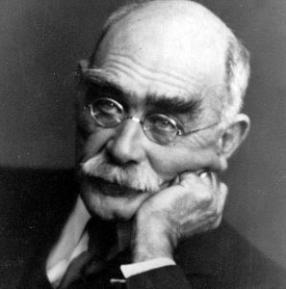It’s important to integrate information from whatever text you’re studying. However, there are many different ways to integrate information from the text, so you should make sure to add some variety.
Integrate the words of the author into your own sentence:
One way to integrate a quote is to mix the author’s words and your own to form one continuous sentence. If necessary, you can add or change the authors statement with brackets to make the sentence grammatically correct, or to clear up any confusion (such as if the author omits words because it makes sense in the context of their own work). You can never use brackets if it will change the meaning of the sentence, so use brackets sparingly. At the end of the sentence, add an in-text citation according to whatever style of citation you are using. Take this quote about the character of Charlie in Rudyard Kipling’s “The Finest Story in the World” for example:
“When next he came to me he was drunk—royally drunk on many poets for the first time revealed to him. His pupils were dilated, his words tumbled over each other, and he wrapped himself in quotations—as a beggar would enfold himself in the purple of emperors.”
-Rudyard Kipling, The Finest Story in the World
If I were to write about “The Finest Story in the World,” I could say:
When drunk, “[Charlie] wrapped himself in quotations-as a beggar would
enfold himself in the purple of emperors” to seem smarter than he
really was (Kipling).
It is important that the sentence flows naturally. Don’t force a sentence to fit; use a different technique instead.

“You done..?”
-Rudyard Kipling
(from poets.org)
Not yet Kipling…
Use a ‘Signal Phrase’:
A “signal phrase” is a short phrase, but not a complete sentence, that names the author and what source you are drawing information from, usually set off from the quote by a comma. Think of the “signal phrase” as any other introductory phrase that would be followed by a comma. Take this quotation for example:
“Quotation, n: The act of repeating erroneously the words of another.”
― Ambrose Bierce, The Unabridged Devil’s Dictionary
To introduce this with a signal phrase I could say:
In The Unabridged Devil’s Dictionary, Ambrose Bierce defines a quotation as “the act of repeating erroneously the words of another.”
Because you already said the name of the work and the author, you don’t need to mention that with an in-text citation; however, if you had a page number, or named the author but not the work, then mention those in an in-text citation.

“can you not with the quotations”
-Ambrose Pierce
(from centipedepress.com)
Use a colon:

Courtesy of the author 🙂
If you want to use an entire sentence, or you can’t get a sentence flow organically with your own words, write a complete sentence and then introduce the quote with a colon. Don’t start a sentence with a quote, or leave a quote placed randomly in your paper with none of your own words to support it. Here’s another quote about quotation.
“[A] quotation is a handy thing to have about, saving one the trouble of thinking for oneself, always a laborious business.”
― A.A. Milne, If I May
If I wanted to use the whole quote, and include my own sentence, I would write:
Quotes can be a very useful way to incorporate information from other sources, but if you rely on them, you won’t really be thinking for yourself: “[A] quotation is a handy thing to have about, saving one the trouble of thinking for oneself, always a laborious business” (Milne).
So, no matter what Kipling, Bierce, and Milne say, quotes are an important tool in academic writing. But ultimately, your professor is looking for your own thoughts, not just the repetition of another author’s!
–Jehan, “peer tutor”

from reactiongifs.com